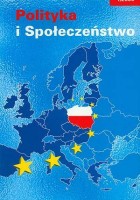Wybrane kierunki edukacji historyczno-politycznej w Republice Federalnej Niemiec
Selected directions of historical-political education in the Federal Republic of Germany
Author(s): Jerzy CentkowskiSubject(s): Politics / Political Sciences, Social Sciences, Political Theory, Sociology, Higher Education
Published by: Wydawnictwo Uniwersytetu Rzeszowskiego
Keywords: historical-political education; National Socialism; anti-Seimitism
Summary/Abstract: The Conference of Ministers of Education of the Federal Republic of Germany in 1950 issued a directive stating that each subject of school education, in line with its specificity, was to contribute to political education of youth. Historical education of youth was required to shape their historical thinking oriented to understanding of the present. The ensuing directives of the educational authorities emphasized decidedly tasks of historical education treated as an “experimental laboratory” for political educa-tion, including a critical light thrown on National Socialism and all kinds of totalitarianism, anti-Seimitism, all kinds of discrimination and breaking human rights. Not only in the Federal Republic but also in the German Democratic Republic, both in politics and in education in the 1950s and 1960s, a special weight was attached to the so called German problem, meaning the unification of Germany which was pre-sented as a global problem... Historical-political education of the West German youth in the 1950s provided objective knowledge of the German problem and of the neighbours from the other side of the Elbe. It distanced young Germans from the Bonn Republic from their country-fellowmen on the other side of the Elbe. In the German Democratic model of historical-political education, the German problem was perceived in an ideo-logical dimension, especially in respect to teaching the youth the spirit of Democratic Socialism and hostility to the Federal Republic as an “imperialistic state”. The changing of the governing elites in both of the German states at the turn of the 1950s and 1960s started a new chapter in the bilateral relations, marking progress from confrontation to co-existence. The model of historical-political education did not corre-spond with the transformation, therefore the contents of the model of education were adapted to the political changes. The breakthroughs in the history of Europe and Germany over the centuries, such as “the Autumn of the Peoples”, the fall of the Berlin Wall, the collapse of the system of the real socialism reached the educational authorities’ and institutions involved in the European integration from the point of view of historical-political education with a delay not only in the united Germany but also in other countries of Western Europe. Only in November 1991 did the Conference of the Ministers of Education issue a di-rective entitled “On the European dimension in education”. Something resembling a “discovery of the history” of Central and Eastern Europe and the reciprocated interest in the history of Western Europe in the systems of education of the countries in the European Union is a beginning of the process of European integra-tion in respect to historical-political education on the scale of the whole continent.
Journal: Polityka i Społeczeństwo
- Issue Year: 2004
- Issue No: 01
- Page Range: 105-117
- Page Count: 13
- Language: Polish

